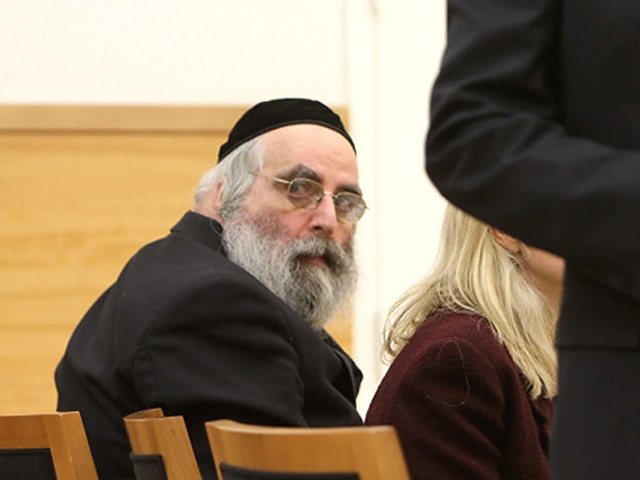Brooklyn Prosecutor Allegedly Helped Protect Child Molester As a Favor
The Gothamist
Even if you've been following the deeply disturbing story of Sam Kellner, the ultra-Orthodox Brooklyn man whose life was destroyed after informing police about a serial child molester who abused his son, you'll want to read The New Yorker's in-depth report on the scandal. It's a fascinating look at how the Hasidic community in Brooklyn enables sex offenders through intimidation, bribery, and their history of voting as a bloc, which gives them significant sway over elected officials like former Brooklyn DA Charles Hynes. New Yorker staff writer Rachel Aviv lays out all the facts of Kellner's ordeal, describing how he needed permission from a rabbi before even reporting his allegation to secular authorities, and how he became a pariah in the community for doing so. "Kellner’s behavior was seriously threatening to the community’s power structure," one observer tells her, and it appears that power structure was only emboldened by Hynes's handling of the case against Baruch Lebovits, a prominent cantor. Despite very flimsy evidence, Kellner was charged with trying to extort money from Lebovits, supposedly in exchange for getting his son to recant "false" allegations. In fact, the Lebovits family tried to bribe Kellner repeatedly with large sums of hush money (something that apparently worked with another accuser), but Kellner refused. "What would I say to my son?” Kellner asks The New Yorker. “That I took money so he could be used as a prostitute?" Perhaps the most incendiary allegation to emerge from The New Yorker's story is that senior Brooklyn Assistant District Attorney Michael Vecchione went after Kellner as a favor to Arthur Aidala, an attorney who represented Lebovits and happened to be a close friend of both Vecchione and Hynes. Six weeks after Lebovits was convicted of molesting a boy ("Aron," not Kellner's son) in 2010, Aidala met with Vecchione. From The New Yorker: Initially, Aidala didn’t focus on Kellner. He spoke about a case that was easier to substantiate: he said that, days before, a friend of Kellner’s named Simon Taub had extorted the Lebovits family. Taub had said that his son had been molested and threatened to go to the police unless he was compensated by the family. A few weeks later, in a sting operation, detectives from the rackets bureau wired Chaim Lebovits, a businessman who had made a fortune in oil and diamonds. Chaim went to Taub’s home and caught him on tape accepting money. After he was arrested, Taub said that prosecutors told him, “If you cooperate with us, you will be home in an hour.” They pushed him to implicate Kellner in an extortion plot. Taub said that he didn’t have the information that the prosecutors wanted. “To cooperate, I had to lie,” he told me. Instead, he pleaded guilty to attempted grand larceny and was sentenced to probation. The alleged abuse of his son was never investigated. Chaim told me that the crime was a “miracle,” because it lent legitimacy to his family’s complaints. Soon, they insisted that Kellner had been after them, too. They said that Kellner had offered to “make the case go away,” but they had refused. As evidence, they gave the rackets bureau the audio recording that the sex-crimes division had already heard. The recording captured a conversation in Yiddish between Meyer Lebovits and Kellner about who would pay the costs of the rabbinic court. The English translation provided to the district attorney’s office was so laden with emotional outbursts and Talmudic references that it is possible to miss the context and understand only that Kellner is asking for money. An assistant district attorney requested that Meyer Lebovits be given a polygraph test, to see if he was lying about his family being extorted by Kellner, but Vecchione said no. According to a prosecutor with knowledge of the case, “There was a strong sense that the investigation was a favor that Mike Vecchione did for Arty Aidala, a very close friend.” (Vecchione and Aidala deny that their friendship affected the case. Vecchione disputes many details of this account.) The rackets bureau encouraged the Lebovits family to get information out of Aron. Under the guidance of Vecchione, who is now retired, the family paid for one of Aron’s friends, also a drug addict, to take Aron to a rented house in Florida and question him about the case. (Vecchione denies knowing about the video before it was made.) The friend pretended to be making a movie of Aron’s life, and enlisted two young filmmakers (also from Hasidic families) to direct the video. They urged Aron to open up about his relationship with Kellner. “In order for me to build the script of your life, I have to know the whole twist,” one of the filmmakers says, in the footage. The whole thing's completely crazy and revolting: Kellner's life was destroyed, a convicted child molester got out of prison after serving just a year and a half, and the message to the ultra-Orthodox community seems to be—in the words of Kellner's son—"Why would you report to the police if you’re just going to shame yourself and open your wounds and be more destroyed?" “They tell me, ‘You’ve ruined the family,’ ” Kellner says, referring to his sons. “And the truth is I’m starting to think maybe they are right. If your job is to protect your child, maybe the best thing to do is keep your mouth shut.” Read the entire infuriating story here. Hynes was finally voted out of office last year, and he's being investigated by the feds, though not for looking the other way on child molesters.
|
.
Any original material on these pages is copyright © BishopAccountability.org 2004. Reproduce freely with attribution.
